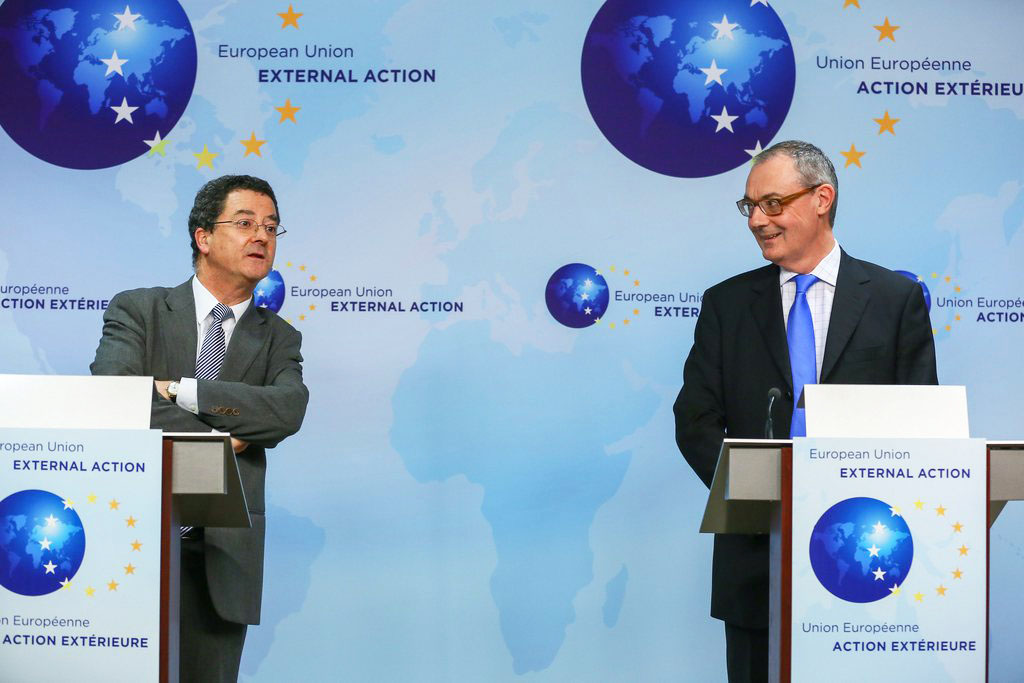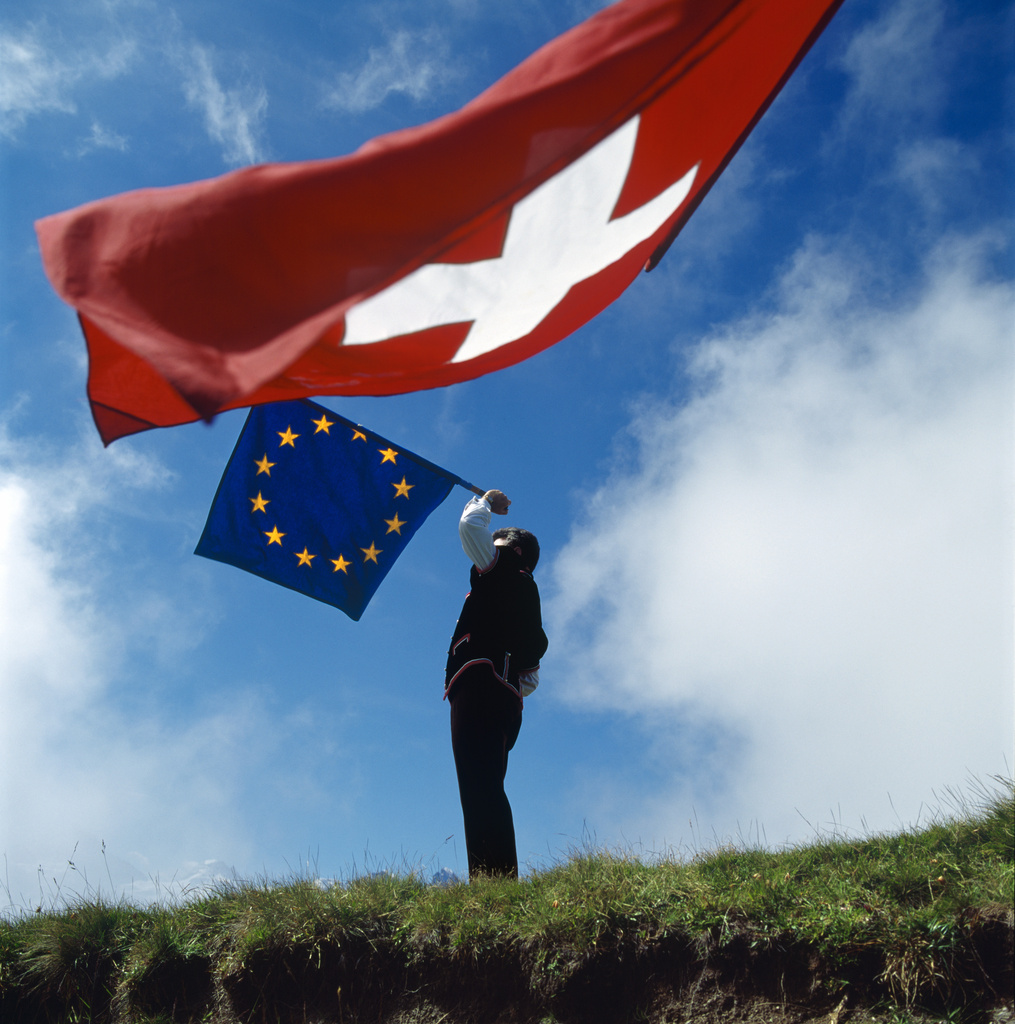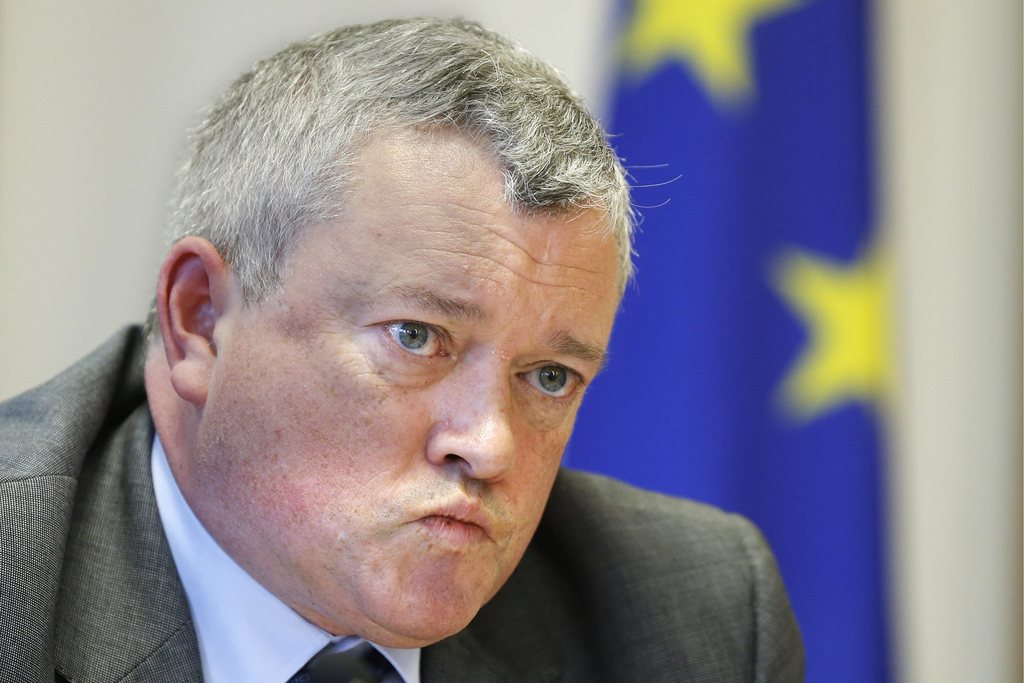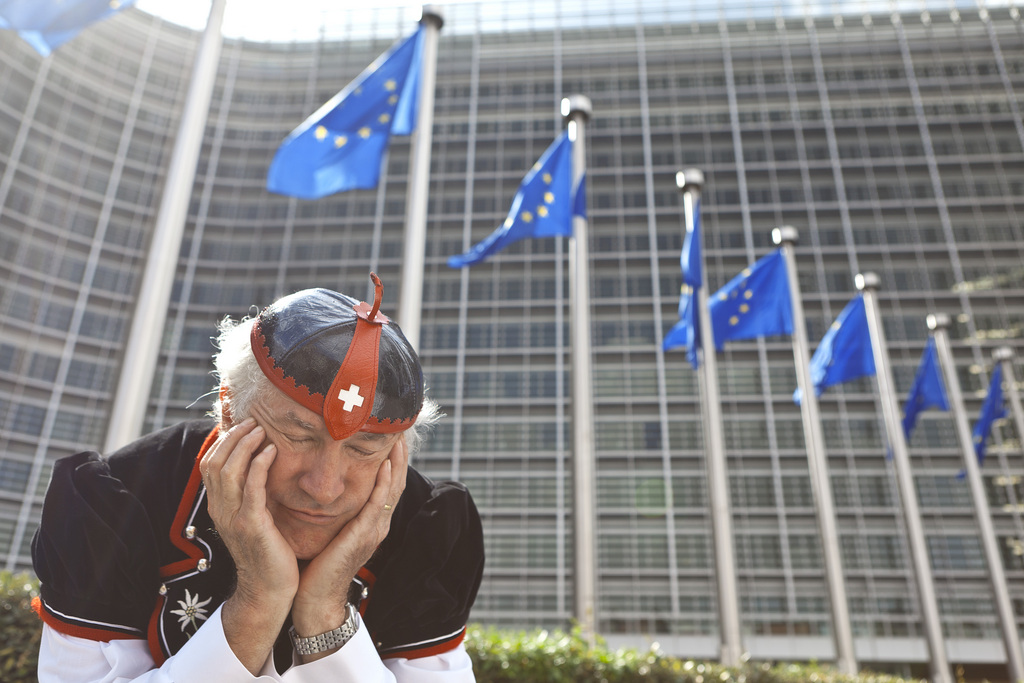Swiss-EU seek to iron out differences

One month after European Union member states adopted a critical report on the state of Swiss-EU relations, top officials from both sides have met in Brussels to try to give a new boost to the relationship and to resolve institutional problems.
Tuesday’s six-hour exploratory talks between Swiss State Secretary Yves Rossier and David O’Sullivan, the Chief Operating Officer of the EU’s diplomatic corps, the European External Action Service, were described as “positive”.
O’Sullivan said he was convinced it was possible to reconcile the current EU and Swiss institutional positions, especially as Switzerland was a “very important” partner.
“We don’t want things to drag on. It will be a question of a few months,” he added.
This was the second meeting between the pair – the last was in November 2012. A follow-up session is scheduled in Bern on March 20.
The two officials plan to submit a series of possible scenarios to unblock the current impasse before summer to Swiss and EU political authorities. Any interesting ideas taken up would be pursued in formal negotiations in autumn.
“There is a willingness on both sides to find solutions to the institutional headache,” said Rossier, adding that during their talks three different options had emerged.
The Swiss secretary of state declined to give more details but one idea is to make the Swiss Competition Commission (Comco) more international to serve as a monitoring body.
Switzerland and the EU have concluded more than 120 bilateral accords on a broad range of issues.
They include the 1972 free trade treaty and the 1999 free movement of people accord, regulating access to the labour markets of Switzerland and the 27-nation bloc.
In 1992 Swiss voters narrowly rejected the European Economic Area treaty, a halfway house to EU membership.
Brussels wants Switzerland to take over EU law automatically pertaining to the accords and an international arbitration body to rule in controversial cases.
Under domestic pressure to stem immigration, the Swiss government last year decided to limit the number of workers from eight eastern EU member states.
Croatia and Cohesion Fund
The two officials told reporters that they had discussed a number of other matters such as Croatia’s forthcoming membership of the EU on July 1, 2013.
One of consequences is that the free movement accord between Switzerland and the EU must be adapted. EU member states are also calling for a Swiss financial contribution to help Zagreb reduce economic and social differences with the most prosperous EU nations.
Another issue on the table was the renewal of Swiss support to the so-called Cohesion Fund – so far over SFr1 billion – for the ten Eastern European countries that joined the European Union in 2004.
“There is no organic link between these financial questions and the other matters,” noted Rossier, adding that they should be examined as part of a global look at EU-Swiss relations.
The electricity market was also a topic for discussion in Brussels. It is unclear whether there is any link between this issue and that of Swiss aid to the less-developed EU states.
“Difficulties over institutional matters should not prevent other issues from progressing at their own pace,” said O’Sullivan reassuringly.
Rocky road
Switzerland is not an EU member but has signed some 200 bilateral accords on a broad range of issues with the body. However, this path is becoming increasingly difficult to follow.
The EU is not only demanding Switzerland adopt EU law but also wants joint supervisory bodies and jurisdiction over the implementation of the bilateral accords.
At the end of December EU transport and energy ministers formally adopted a list of complaints against Switzerland, declaring that bilateral accords were “at a dead end” and Switzerland should “dynamically assume” EU law.
But Switzerland rejects any measure which would force it to automatically adjust to developments in EU law, seeing this as an attack on its sovereignty.
Last summer, Swiss President Eveline Widmer-Schlumpf sent a letter to Brussels containing potential negotiable solutions. This was “received favourably” by the EU.
To respond to European demands of improvements in the current inefficient monitoring system, Bern proposed the implementation of a non-European system which would be national and independent. However, this idea was rejected by the EU, which called for an “international supervisory mechanism and legal control”.
(Adapted from French by Simon Bradley)

In compliance with the JTI standards
More: SWI swissinfo.ch certified by the Journalism Trust Initiative



You can find an overview of ongoing debates with our journalists here. Please join us!
If you want to start a conversation about a topic raised in this article or want to report factual errors, email us at english@swissinfo.ch.